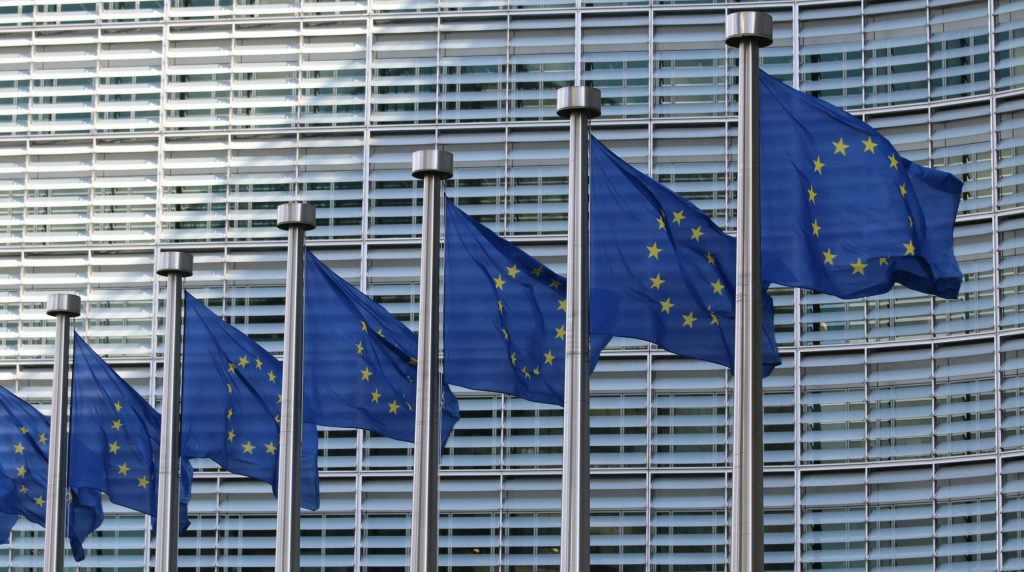Bristol law grad Jessica Hall analyses the EU’s bond cartel ruling

In a significant move affirming the EU courts’ stance on anti-competitive practices in the financial services sector, the General Court of the European Union has upheld fines levied by the European Commission against Credit Suisse (now under UBS ownership) and Crédit Agricole for alleged involvement in a bond cartel in a judgement handed down on 6 November 2024 (Credit Suisse Group and Credit Suisse Securities (Europe) v European Commission). With penalties totalling over €15 million, this decision highlights a wider regulatory dedication to enforcing market integrity in all corners of the financial markets and, perhaps more importantly, a determination to hold all forms of historic, informal and even ‘sporadic’ communications to account.
The judgement marks a significant notch in a neat pattern of strict enforcement this year. EU regulators are increasingly focussed not only on clear-cut illicit practices, but also on the systemic culture of complicity amongst financial institutions. Wednesday’s recent judgement also signals the robustness of the European Commission’s investigations, and a willingness to escalate oversight demands on firms. Below, we will examine the judgement’s impact, the regulatory framework behind it and the potential repercussions on the sector.
Background to the case: The bond market’s underbelly
In 2021, the European Commission opened an investigation into cartel activities within the secondary market for SSA bonds. Specifically, banks including Credit Suisse and Crédit Agricole were identified as participants in collusive practices involving information exchange and price alignment through chatrooms – named ‘the Kumars’ after a BBC comedy TV show – on the trading of U.S. super-sovereign, sovereign and agency bonds over five years. Deutsche Bank also participated in the cartel but received full immunity from fines under the 2006 Leniency Notice because they were the first to inform regulators about the illegal behaviour.

The Commission’s finding alleged that the banks had coordinated their trading strategies in ‘pursuing a single anti-competitive objective.’ The situation was amplified by the low-risk status of SSA bonds – which positions them for widespread use by large institutional investors – meaning that cartel activities in this market ripple outward, affecting not only direct market participants but also the broader investment landscape.
Credit Suisse and Crédit Agricole’s basis for appeal
• The Commission breached Article 101 of the TFEU and provided insufficient reasons in finding that the applicants engaged in conduct that has, as its object, the restriction or distortion of competition.
• In particular, the Commission insufficiently considered the relevant legal and economic context and failed to discharge its burden in proving that the conduct at issue in the contested decision restricts competition.
• Uniquely, Credit Suisse claimed that the Commission misapplied the concept of a single and continuous infringement. In particular, the Commission failed to prove that the ‘consistent’ communications – that ceased in 2013 – and the ‘sporadic’ ‘bilateral’ communications which followed shared an overall plan pursuing a common objective.
• They also argued that the fine imposed significantly overstated the gravity of the alleged infringement.
In addition to this, Crédit Agricole claimed that:
• The Commission erred in law by presuming that Credit Agricole traders were aware of all the information contained in a Bloomberg chat, simply by being logged into a chat room.
• The Commission has not proven that Credit Agricole contributed to, or was aware of, an overall plan or that the applicants participated in a continuous infringement.
Want to write for the Legal Cheek Journal?
Find out moreWhy did this fail?
Despite both banks’ spirited appeals, the EU General Court in Luxembourg has backed the European Commission’s 2021 decision and calculated penalties. The heavy-handed approach is far from an isolated incident; it joins a growing list of anti-corruption investigations within the EU’s financial services sector, underscoring a determined regulatory push against anti-competitive practices.
The widespread use of SSA bonds as a staple for large institutional investment portfolios also brought the anti-competitive practices under the harsh light of ESMA and MiFID II, which necessitate transparency, oversight and investor protections.
Margrethe Vestager, the EU’s competition commissioner, speaking about the 2021 decision, condemned the actions of those traders who acted to restrict competition “in a market in which investment and pension funds regularly buy and sell bonds on behalf of their investors and pensioners.” The broader message from regulators is clear: firms are expected to uphold the highest standard of fair competition, oversight and transparency, and the courts will not look to mitigate penalties on the basis of collusion being historic, informal or sporadic.

Whilst a strict approach to regulating significant financial institutions is critical for maintaining market stability, the expansion of firms’ obligations to monitor both formal and informal communications with unprecedented diligence may have an anti-competitive impact on the industry itself.
The ever-expanding accountability of financial services firms
The 6 November ruling against Credit Suisse and Crédit Agricole brings us to the forefront of a regulatory landscape that increasingly necessitates the review and oversight of historic and informal communications. The EU’s expansive interpretation of accountability now holds financial institutions to stringent standards that blur the line of formal and conversational conduct.
As standards continue to evolve – for example, with the expected integration of RegTech or ‘Regulatory Technologies’ by firms to monitor compliance in real time – courts and regulators will need to consider the impact of heightened demand on smaller financial institutions. For these firms, the cost of scrutiny may become so financially taxing that growth is impossible. As a result, regulators could be unintentionally suppressing the fair competition that they aim to promote.
Final outlook
The General Court’s ruling confirms a critical reality for the European financial services industry: regulators and courts are resolute in their enforcement of fair competition, regardless of any historic, informal or sporadic mitigating factors put to appeal by large firms. The rigor of courts and regulators, and insistence on the introduction of more complex and expensive oversight programs, may also begin to cause a ‘mission creep’ that smaller firms simply cannot keep up with. In this case, EU regulators will need to consider whether the cost and complexity of the compliance they propose might ultimately misshape the competitive field that they had set out to protect.
Jessica Hall is a recent graduate from the LLB at the University of Bristol. She has a sustained interest in financial services regulation and enforcement, along with relevant fintech and cryptoasset crossover.
The Legal Cheek Journal is sponsored by LPC Law.


